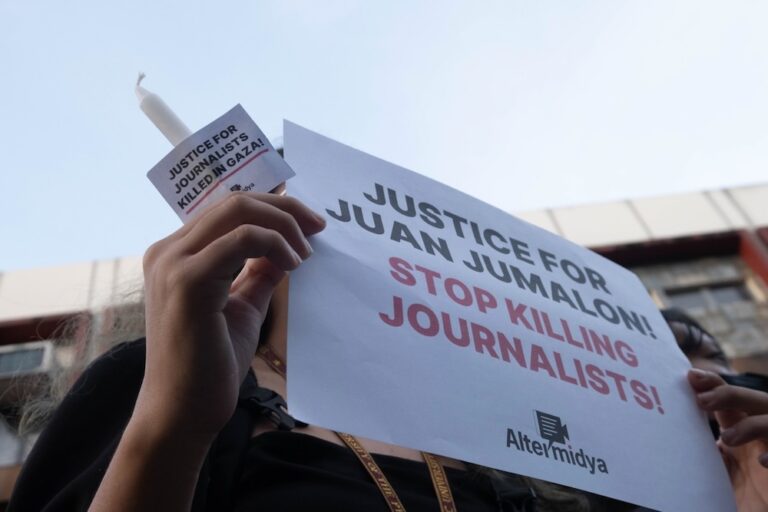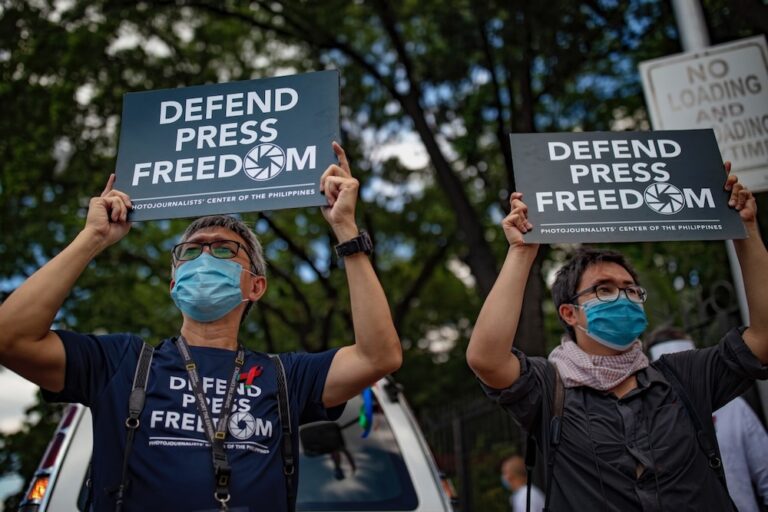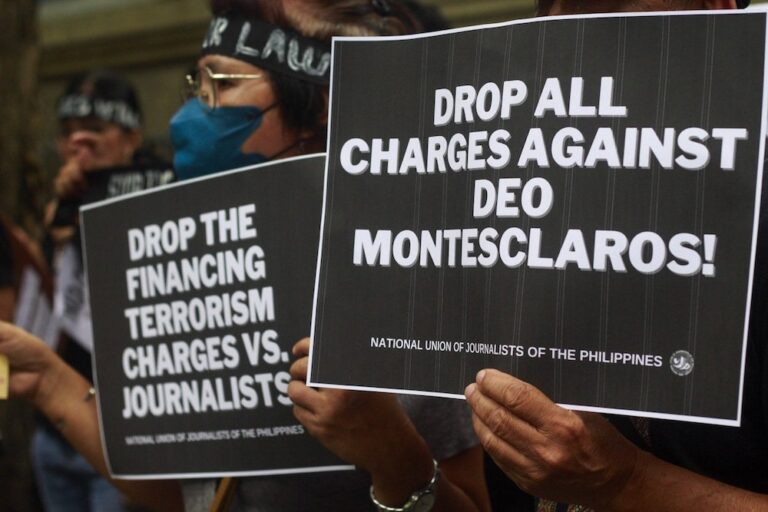The revised guidelines were issued after journalistic investigations into the assets and liabilities of President Arroyo and her family had begun.
(SEAPA/IFEX) – The Office of the Ombudsman of the Philippine government is under fire for an order tightening rules on the release of Statements of Assets, Liabilities and Net Worth (SALNs) of government officials.
Media reports say that, on 16 June 2009, Philippine Ombudsman Merceditas Gutierrez issued Memorandum Circular No. 1, which revised the guidelines for obtaining access to copies of SALNs. Media groups and access to information advocates in Manila noted that, shortly before the order was given, two investigative journalism outfits – the Philippine Center for Investigative Journalism (PCIJ) and VERA Files – had already started probing the SALNs of President Gloria Arroyo and her family members.
The PCIJ and VERA Files reports suggested that members of the Arroyo family had undeclared and unexplained wealth.
Assistant Ombudsman Jose de Jesus said in an interview with GMA Television News on 8 September that the memorandum was meant to protect the “confidentiality” of the SALNs submitted by government officials in their office. “We just want to protect those who submitted the SALN to us, because they trust us, so it is only proper that we protect the confidentiality and integrity of these documents,” he said.
Journalists and access to information groups have been quick to denounce the order, and have raised questions as to whether or not the directive is linked to the PCIJ and VERA Files reports on the allegedly unexplained wealth of President Arroyo, her husband and her children.
On 9 September, opposition legislator Teddy Casiño, who is a founding member of the Southeast Asian Legislative Caucus on Rights and Free Expression, called on Ombudsman Gutierrez to recall the controversial memorandum.
Casiño said, “The public has the right and a duty to scrutinize the lifestyle and properties of government officials who are supposed to be servants of the people. Conversely, government officials should be accountable to the people at all times. This circular is a step in the wrong direction.”
Access to information groups said the memorandum would contradict Republic Act 6713, or the Code of Conduct for Public Officials and Employees, on SALNs. Government officials and employees are required by law to “accomplish and submit declarations under oath (. . .) and the public has the right to know their assets, liabilities, net worth and financial and business interests including those of their spouses and of unmarried children under 18 years of age living in their households.” Section 8 of the law says that all statements, including SALNs, shall be available for copying or reproduction after 10 working days from the time they are filed.
The PCIJ’s three-part report on President Arroyo’s wealth revealed that she got richer faster than her three presidential predecessors. The report also showed that her net worth from 1991 to 2008 surged by 2000 per cent. Her net worth grew from P6.73 million (approx. US$140,000) in 1992 to P60.07 million (approx. US$1.25 million) in the year 2000. Since she got into Malacañang, the official residence of the president, in 2001, Arroyo added P10.97 million (approx. US$228,000) to her net worth year-on-year on average, or 20 times more than her lawful gross salary as president of only P45,000 (approx. US$934) a month, the report said.
VERA Files’ report, meanwhile, showed that presidential sons Pampanga Rep. Juan Miguel ‘Mikey’ Arroyo and Camarines Sur Rep. Diosdado ‘Dato’ Arroyo acquired real estate properties in the US after they became congressmen. The report said they failed to properly declare the same in their SALNs, much less explain how they were able to afford the million-dollar properties.


